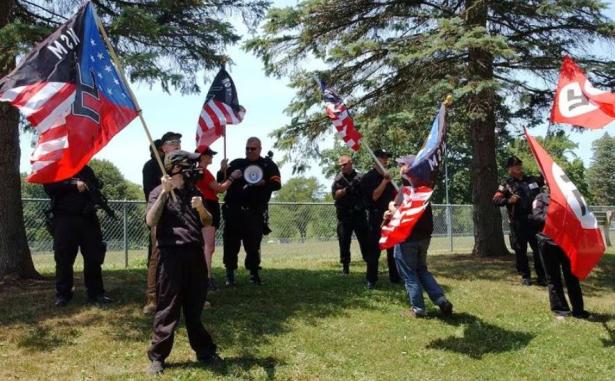Central Pennsylvania ‘Sundown Towns’ and the Legacy of Racism: ‘It’s Still Here’

‘Don’t get caught there,’ The legacy of sundown towns is not confined to the pages of history books – but is alive and well in 2024. Deep racial disparities are evidence that the intent of sundown towns still lingers today.
By Ivey DeJesus
Feb 22, 2024 – Growing up in the 1960s, the Rev. Roger Dixon heard the warnings every time the William Penn High School football team was set to play Cedar Cliff.
“The older men used to say ‘don’t get caught up there after the game. You might get into trouble. They might try to arrest you,’” recalls Dixon, who is Black and graduated from William Penn in 1966.
Rafiyqa Muhammad tells of a similar experience growing up in Harrisburg.
“Our parents always told us about certain areas,” she said. “Our father would tell us don’t go here, don’t go there. Do not go over to the West Shore. I remember we would drive in and drive out. There was no going over and hanging out.”
Like Dixon, Muhammad, who is Black and came of age in the 1960s and 1970s, lived through some of the most tumultuous times in this country as the vestiges of segregation and the push for civil rights framed the lives of millions of Americans.
As the nation observes Black History Month in February, celebrating the accomplishments and contributions of Black Americans, the experiences of ordinary Americans like Dixon and Muhammad attest to the painful reality that racism was not confined to the south.
Across communities in central Pennsylvania, Black residents were made to feel unwelcome in many communities, especially after dark, and in many cases the communities were their own.
So-called “sundown towns” became a fixture across the country in the early 1900s. These were all-white communities that excluded non-whites via discriminatory laws, intimidation and violence.
These practices were at times explicit – written into statutes and charters – and other times the understanding that if you were Black, you better be out of town by sunset, hence the name. Some towns posted warning signs to Blacks not to “let the sun go down on you here.” Other towns rang a bell at the end of the workday warning Black workers to leave.
Harrisburg may have been well north of the Mason-Dixon Line, but in many ways was emblematic of the practice of sundown towns. While Dixon and Muhammad attended predominantly Black schools and spent time in mostly Black communities, sometimes they needed to cross the Susquehanna River to the mostly white west shore.
“They didn’t call it sundown town, but we know what they meant,” Dixon said. “The old men would say you never know, you never know. Don’t get caught up over there. They were very serious about it.”
Cultural documentarian Candacy Taylor has collected crowd-sources data showing that Pennsylvania was home to about 40 sundown towns, underscoring that these towns were not confined to the south or Midwest.
In her book, “Overground Railroad: The Green Book and the Roots of Black Travel in America,” Taylor mapped the prevalence of such towns in the region. They included Middletown and Camp Hill, and while Harrisburg was not named among the towns, oral histories of residents suggest that those racist attitudes in some neighborhoods prevailed.
“When I hear people say sundown town, I know what that means but I’m looking at my own backyard,” Muhammad said. “We couldn’t get more sundown than here and it’s still that way.”
Muhammad grew up with the unwritten rule that she and her friends – as they walked to and from school and across their Harrisburg community — needed to avoid areas.
“There were places we could not go to,” she recalls. “When we went to school you better not walk through Bellevue Park. You better not be caught there. Italian Lake? The same. You better not be caught in Italian Lakes or the authorities would be called on you and who knows what else.”
Continue reading